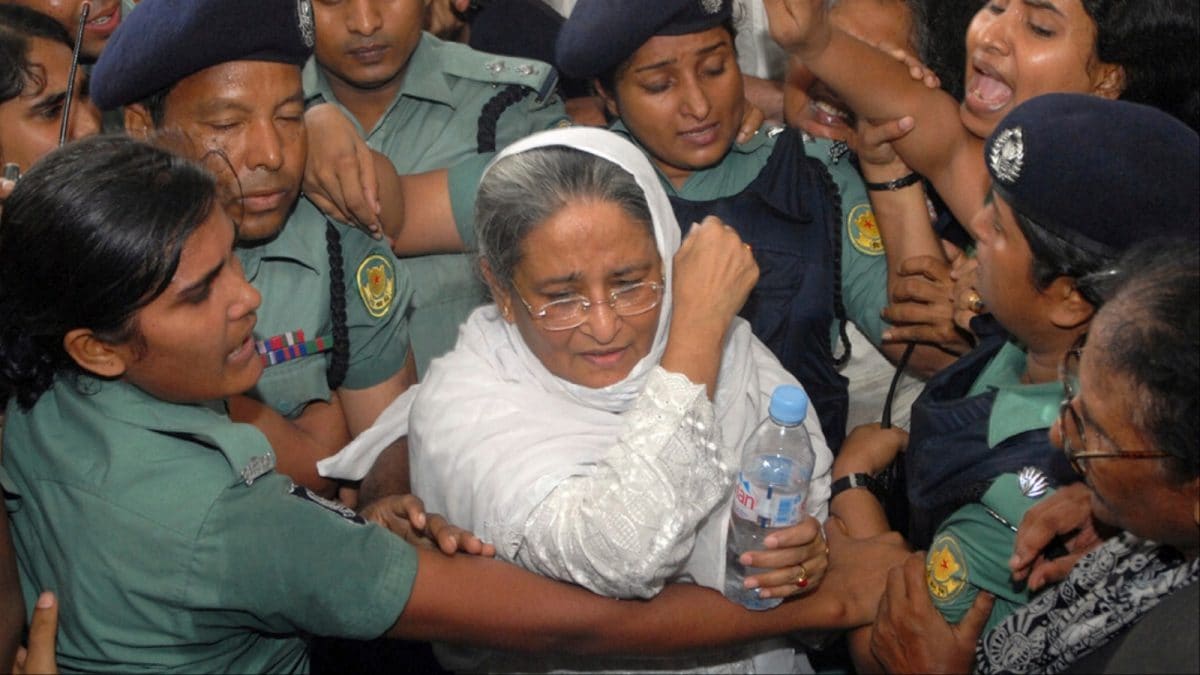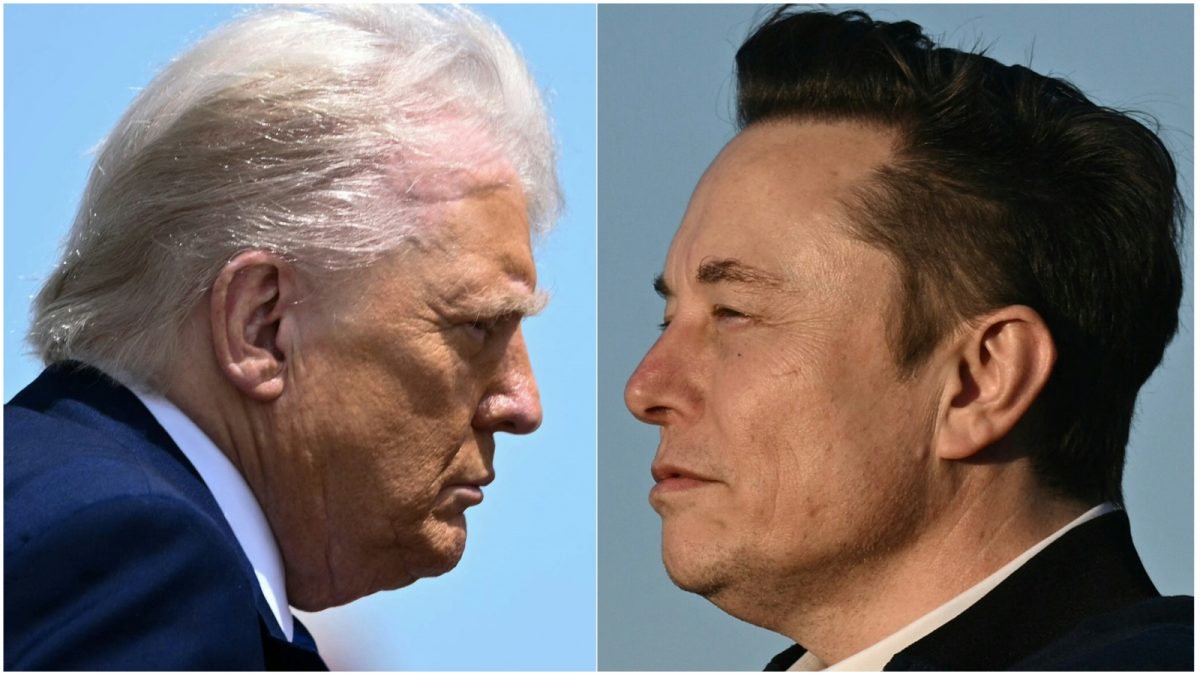Last Updated:May 18, 2025, 15:27 IST
A new condition has also been imposed on the provinces where the four federating units will implement the new Agriculture Income Tax laws through a comprehensive plan.

The Monetary Fund (Reuters)
In a significant development, the Monetary Fund (IMF) has slapped 11 new conditions on Pakistan for the release of the next tranche of its bailout programme, warning that tensions with India could heighten risks to the scheme’s fiscal, external, and reform goals.
This came after the IMF decided in favour of a $1 billion bailout for Pakistan, despite India’s protests and concerns that these funds will be used for cross-border terrorism. India had criticised the decision to grant Pakistan the bailout package and abstained from the vote, saying it sends a dangerous message to the global community.
Pakistan relies heavily on IMF bailout packages to support its declining foreign reserves. The country received crucial assistance from the fund last year, when it was on the brink of bankruptcy, with the IMF stepping in to provide a $3 billion short-term loan that helped avert a financial collapse.
What Are The New IMF Conditions?
The new conditions imposed on Pakistan include the parliamentary approval of a new Rs 17.6 trillion budget for fiscal year 2026, an increase in the debt servicing surcharge on electricity bills and lifting restrictions on the import of more than three-year-old used cars, according to The Express Tribune newspaper.
The IMF released a Staff Level report on Saturday, where it highlighted that "rising tensions between India and Pakistan, if sustained or deteriorate further, could heighten risks to the fiscal, external and reform goals of the programme".
It said tensions between Pakistan and India have risen significantly over the past two weeks, in wake of the Pahalgam terror attack and India’s Operation Sindoor against terror camps in Pakistan. However, the market reaction has been modest so far, with the stock market retaining most of its recent gains and spreads widening moderately.
The IMF report showed Pakistan’s defence budget for the next fiscal year at Rs 2.414 trillion, which is higher by Rs 252 billion or 12%. Compared to the IMF’s projection, the Shehbaz Sharif-led government indicated that it will allocate over Rs 2.5 trillion or an 18% higher budget, after confrontation with India early this month.
The IMF slapped 11 more conditions on Pakistan, taking the total conditions to 50. The report has shown the total size of the federal budget at Rs 17.6 trillion, including Rs 1.07 trillion for development spending.
A new condition has also been imposed by the global moneylender on the provinces where the four federating units will implement the new Agriculture Income Tax laws through a comprehensive plan, including the establishment of an operational platform for processing returns, taxpayer identification and registration, a communication campaign, and a compliance improvement plan. The deadline for the provinces is June this year.
According to the third new condition, the government will publish a governance action plan based on the recommendations of the Governance Diagnostic Assessment by the IMF. Another new condition states that the government will prepare and publish a plan outlining the government’s post-2027 financial sector strategy, outlining the institutional and regulatory environment from 2028 onwards.
Energy Sector, Debt Surcharge Conditions
Four new conditions have been introduced in the energy sector. The government has been urged to issue notifications of the annual electricity tariff rebasing by July 1 of this year to maintain energy tariffs at cost recovery levels. It will also issue a notification of the semi-annual gas tariff adjustment to maintain energy tariffs at cost recovery levels by February 15, 2026, according to the report.
The Pakistani Parliament is also called upon to adopt legislation to make the captive power levy ordinance permanent by the end of this month, according to the IMF. The government has increased the cost for the industries to force them to shift to the national electricity grid. The Parliament will also adopt legislation to remove the maximum Rs 3.21 per unit cap on the debt service surcharge, which is tantamount to punishing honest electricity consumers to pay for the inefficiency of the power sector.
The IMF has also imposed a condition that Pakistan will prepare a plan based on the assessment conducted to fully phase out all incentives in relation to Special Technology Zones and other industrial parks and zones by 2035. The report has to be prepared by the end of this year.
Finally, in a consumer-friendly condition, the IMF has asked Pakistan to submit to the Parliament all required legislation for lifting all quantitative restrictions on the commercial importation of used motor vehicles (initially only for vehicles less than five years old by the end of July. Currently, only cars up to three years old can be imported.
India-Pakistan Tensions
On May 7, 2025, India launched Operation Sindoor, a military operation targeting terrorist infrastructure in Pakistan and Pakistan-occupied Kashmir (PoK). The operation was a response to a deadly attack on April 22, 2025, in Pahalgam in which 26 civilians, including one Nepali national, were killed.
Following the successful targeting of terror hideouts under Operation Sindoor, the Pakistani Army sent drones, missiles, UAVs and engaged in cross-border shelling and firing, targeting the military and civilians alike, as they intervened to save the terrorists India targeted to avenge the Pahalgam carnage. India successfully defended itself against Pakistan’s drone and missile attacks and launched precise strikes targeting Pakistani military airbases, dealing a crippling blow to the Pakistani Army.
After four days of hostilities, India and Pakistan announced reaching an understanding on May 10 to stop all firings and military actions on land, air and sea, with effect from 5 pm that day. However, the Indian government made it clear that any future attack would see a strong response on India’s own terms.
(with PTI inputs)
Location :Islamabad, Pakistan
First Published:News world IMF Tightens Bailout Terms For Pakistan, Imposes 11 New Conditions

 1 month ago
1 month ago


















